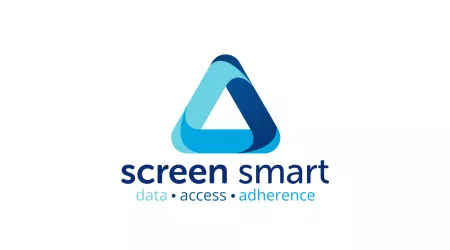Colon Health Alert: FDA Approves New Screening Test Epi proColon
On April 13, 2016, Epigenomics announced that the FDA approved Epi proColon, the first and only blood-based colorectal cancer screening test. This test has the potential to increase participation rates in colorectal cancer screening by providing another option to get checked. How exactly does the test work? The test detects a marker in blood plasma (Septin 9) specific to colorectal cancer. For patients, the test only requires a simple blood sample as part of a routine health care provider visit. The sample is then analyzed at a local or regional diagnostic laboratory. Within a week, the results are sent to your doctor. Who is this test for? Epi proColon is intended for people age 50 and older who are considered to be at average-risk for colorectal cancer and who are unwilling or unable to be screened by FIT or colonoscopy. We understand this test was once referred to as Septin 9 and now we see it being called Epi proColon. Can you explain the use of the two names? The name Septin 9 refers to the gene that is measured in the test. This name was used by laboratories who developed their own version of the test. Epi proColon is the name of the FDA approved product that measures the Septin 9 gene. Are there any dietary restrictions or prep needed before taking this test? Unlike some screening methods for colorectal cancer, there are no nutritional recommendations, prep or alterations in medication required for the Epi proColon test. Blood samples can be taken at any time. What is the colorectal cancer detection rate for this test? Epi proColon was tested in large clinical trial at 32 different clinical sites. The trial included women and men aged 50 to 85 who were average risk for colorectal cancer. During the clinical trial, the Epi proColon blood test was positive for seven out of 10 colorectal cancers when colorectal cancer was present. The test was also positive two out of 10 times when colorectal cancer was not present. In a second clinical trial performed at 61 sites, the test was again positive in 72% of patients with colon cancer, but also positive in 19% of patients who did not have cancer. How does Epi proColon compare to a FIT test's ability to detect colon cancer? For sensitivity, the Epi proColon is similar to FIT: Epi proColon is 72 percent, where FIT falls in at 68 percent. For specificity, Epi proColon is slightly lower than FIT: Epi proColon is 81-82 percent, where FIT is 92-95 percent. Are there any risks associated with this test? As no diagnostic method is perfect, there is a risk of false negative results. Positive Epi proColon test results have been found in patients diagnosed with chronic gastritis, lung cancer and in pregnant women. Additionally, some people with colorectal cancer may have a negative test result; studies show that altered Septin 9 DNA is not found in the blood of all people with colorectal cancer. Do I still need to have a colonoscopy if my Epi proColon test is positive? Yes. The Epi proColon test is not intended to replace a colonoscopy, which can examine the interior lining of your intestine and rectum. Although a positive Epi proColon test strongly suggests you may have colorectal cancer, your doctor should schedule a colonoscopy to confirm the results. If I don't have insurance, what is the cost of this test? Cost: $300. No assistance plan available. Will insurance only cover this test if I am 50 years of age and older? Insurance does not cover the test it is only self-pay. When will this test be available at doctor offices? The test should be commercially available within the next month. What is the recommended frequency at which this test should be done? This test is currently recommended for annual screening to people who are unwilling or unable to do other recommended tests. Additional information and studies on this will be evaluated in a post FDA approval study. Epigenomics will provide updated information when this review is completed. Is there a financial assistance or co-pay relief program available? At this time, there is not a financial assistance program provided through Epigenomics. The Colon Cancer Alliance provides patients and the general public with vital information about colorectal cancer, its prevention and treatment. These Colon Health Alerts are sent whenever there is approval of new treatments or devices, significant advances in research or other timely and relevant updates related to the Colon Cancer Alliance mission. Reference herein to any specific commercial products, process or service by trade name, trademark, manufacturer or otherwise, does not constitute or imply its endorsement, recommendation or favoring by the Colon Cancer Alliance. The information provided in this Alert is designed to help empower patients and does not replace the direct relationship between patients and health professionals. Patients should not make any healthcare decision based on information in this Alert without first contacting your physician or healthcare professional.
Top resources

National Cancer Prevention Month: Majority View Encouraging Screening as an Act of Love
Americans increasingly view colorectal cancer screening encouragement as an act of love, with new survey data showing rising openness about lifesaving prevention.

Katie Couric Joins the Colorectal Cancer Alliance To ‘LEAD FROM BEHIND’
Katie Couric joins the Colorectal Cancer Alliance and Ryan Reynolds’ Maximum Effort to expand LEAD FROM BEHIND, a star-powered campaign breaking stigma and urging lifesaving colon cancer screening. Colon cancer is the preventable cancer.

20+ Colorectal Cancer Alliance Screen Smart Partners Encourage Secretary Kennedy to Uphold USPSTF Goal to Improve Health
The Colorectal Cancer Alliance and more than 20 Screen Smart partners urge HHS Secretary Robert F. Kennedy Jr. to protect USPSTF’s evidence-based process and no-cost preventive screenings like colorectal cancer screening, which save lives and improve national health.





